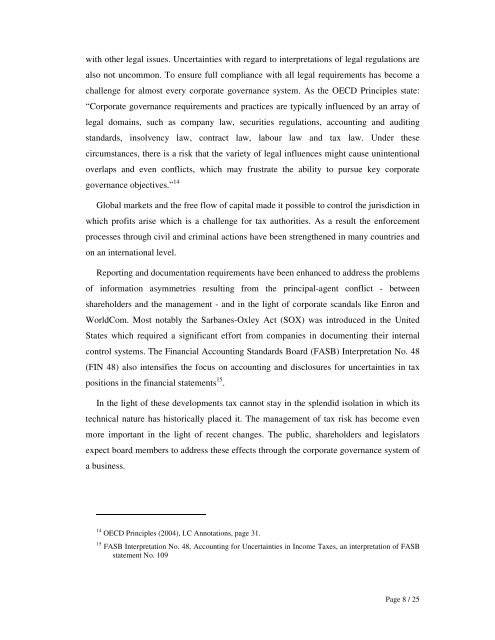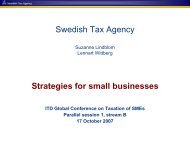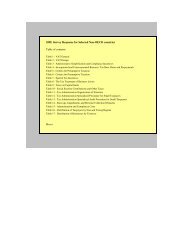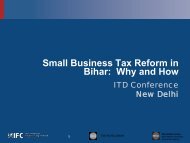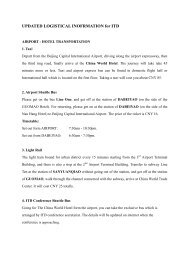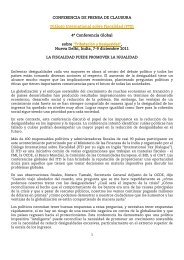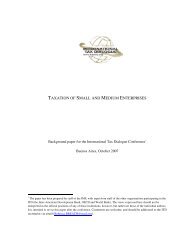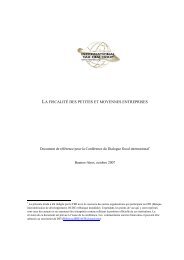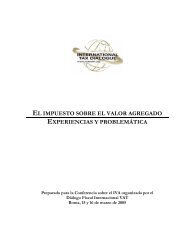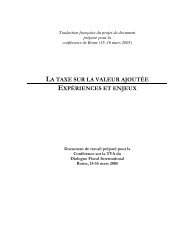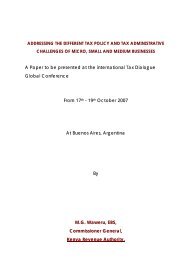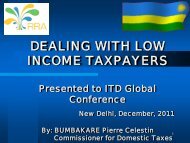Tax Risk Management and Board Responsibility - International Tax ...
Tax Risk Management and Board Responsibility - International Tax ...
Tax Risk Management and Board Responsibility - International Tax ...
You also want an ePaper? Increase the reach of your titles
YUMPU automatically turns print PDFs into web optimized ePapers that Google loves.
with other legal issues. Uncertainties with regard to interpretations of legal regulations are<br />
also not uncommon. To ensure full compliance with all legal requirements has become a<br />
challenge for almost every corporate governance system. As the OECD Principles state:<br />
“Corporate governance requirements <strong>and</strong> practices are typically influenced by an array of<br />
legal domains, such as company law, securities regulations, accounting <strong>and</strong> auditing<br />
st<strong>and</strong>ards, insolvency law, contract law, labour law <strong>and</strong> tax law. Under these<br />
circumstances, there is a risk that the variety of legal influences might cause unintentional<br />
overlaps <strong>and</strong> even conflicts, which may frustrate the ability to pursue key corporate<br />
governance objectives.” 14<br />
Global markets <strong>and</strong> the free flow of capital made it possible to control the jurisdiction in<br />
which profits arise which is a challenge for tax authorities. As a result the enforcement<br />
processes through civil <strong>and</strong> criminal actions have been strengthened in many countries <strong>and</strong><br />
on an international level.<br />
Reporting <strong>and</strong> documentation requirements have been enhanced to address the problems<br />
of information asymmetries resulting from the principal-agent conflict - between<br />
shareholders <strong>and</strong> the management - <strong>and</strong> in the light of corporate sc<strong>and</strong>als like Enron <strong>and</strong><br />
WorldCom. Most notably the Sarbanes-Oxley Act (SOX) was introduced in the United<br />
States which required a significant effort from companies in documenting their internal<br />
control systems. The Financial Accounting St<strong>and</strong>ards <strong>Board</strong> (FASB) Interpretation No. 48<br />
(FIN 48) also intensifies the focus on accounting <strong>and</strong> disclosures for uncertainties in tax<br />
positions in the financial statements 15 .<br />
In the light of these developments tax cannot stay in the splendid isolation in which its<br />
technical nature has historically placed it. The management of tax risk has become even<br />
more important in the light of recent changes. The public, shareholders <strong>and</strong> legislators<br />
expect board members to address these effects through the corporate governance system of<br />
a business.<br />
14 OECD Principles (2004), I.C Annotations, page 31.<br />
15 FASB Interpretation No. 48, Accounting for Uncertainties in Income <strong>Tax</strong>es, an interpretation of FASB<br />
statement No. 109<br />
Page 8 / 25


